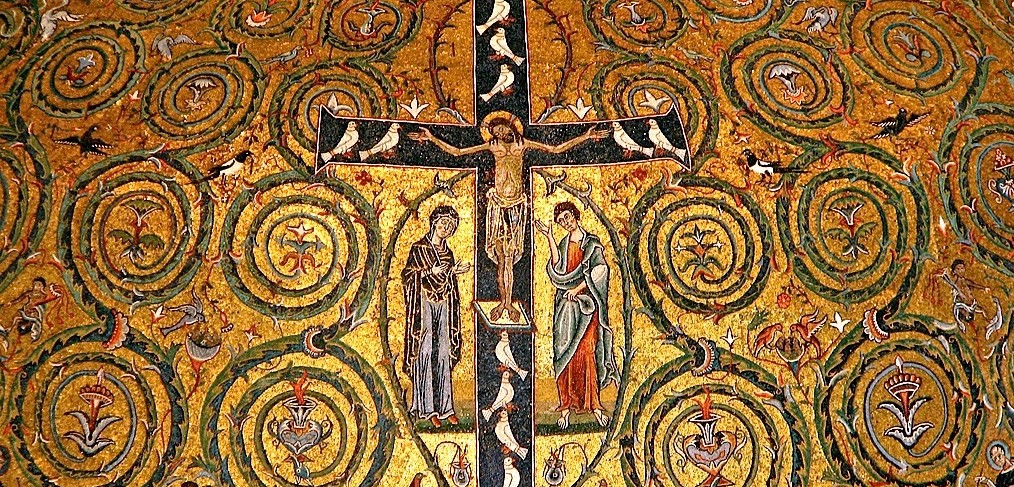Jesus replied to Pilate’s questioning: My kingship is not of this world… At a later stage in the interview Jesus tells the Roman Procurator: I am a king. For this I was born… Although the Reign of Christ is not of this world, it has its beginnings here.
Christian identity begins and ends with childhood—the unique childhood of the children of God.
A reflection on love for the sacred liturgy must begin beneath an old tree.
In this paradise everyone feels free, at home, accepted, and loved in ways which far surpass whatever freedom, acceptance, or love we have ever experienced on earth. Here, we meet the saints as friends.
Each generation should consider what it will leave to future ones: what we need to do, and how we need to do it, so that tomorrow’s world may be better than today’s.
Saints have the uncanny ability to startle us with their insights into the basic truths of our faith.
Learning to contemplate and to suffer in union with Christ is where we begin to experience our own resurrection. Suffering in union with Christ, we become free to love and to be loved in God’s way.
Where is the ordinary corner of your life – where Jesus is waiting for you to love? Begin searching for these with me, today. Let’s love in the small parts of our lives.
By the mid-1940’s, St. Josemaria Escriva had witnessed the apostolate of Opus Dei, which he founded, beginning to spread throughout Spain and abroad.
The liturgical prayers for the Solemnity of the Lord’s Ascension ask that we might follow Christ to the place where He has gone.
The idea that God called me right where I was with this husband and these children and the constant dirty dishes, dirty diapers, and dirty bathrooms was literally life altering. It gave meaning to who I was and what I was doing day in and day out.
By now we in the Church are very comfortable applying the term vocation to any state in life that aims at serving God. We use the word broadly to indicate that everyone’s life has something to contribute to the up-building of the kingdom of God on earth and the salvation of souls.
At the end of His earthly life, our Lord sought to teach His disciples how they would remain united to Him in His absence. They certainly wanted this, as their distress at Jesus’ imminent departure shows.
The story of two discouraged men making a long journey home after having witnessed the Lord’s grueling passion (Luke 24:13-35) is pure balm for the suffering soul, especially for any suffering in the ways St Josemaria indicates: having lost a sense of hope or of meaning in life.
You’ve begun to live the spiritual life in earnest. You say your daily prayers and make your daily meditation. Is there more?
What does the voice of the Good Shepherd sound like? Would you know it if you heard it?
Perhaps no question comes more frequently to the sincere and devout person trying to live an authentic spiritual life than, “Am I doing it right?” Or, “Am I missing something?”
In the three-year cycle of readings for the Solemnity of Christ the King, it might seem strange to have Gospels that emphasize Christ’s weakness. Instead of seeing the Lord in triumph, we often see Him judged and condemned or hanging from the cross.
A burning lamp is a Biblical symbol of vigilance, fidelity. Waiting servants, no less than the ten virgins of the wedding party, are expected to keep their lamps supplied with oil for one purpose: keeping the lamp’s light aflame. And that flame means much more than light to see by.
The fact that God can take away any problem he wishes, or hasten the end of some unpleasantness, might leave us imagining a whole ungainly mess of wasted time in God’s providence that could have been much better spent.




















